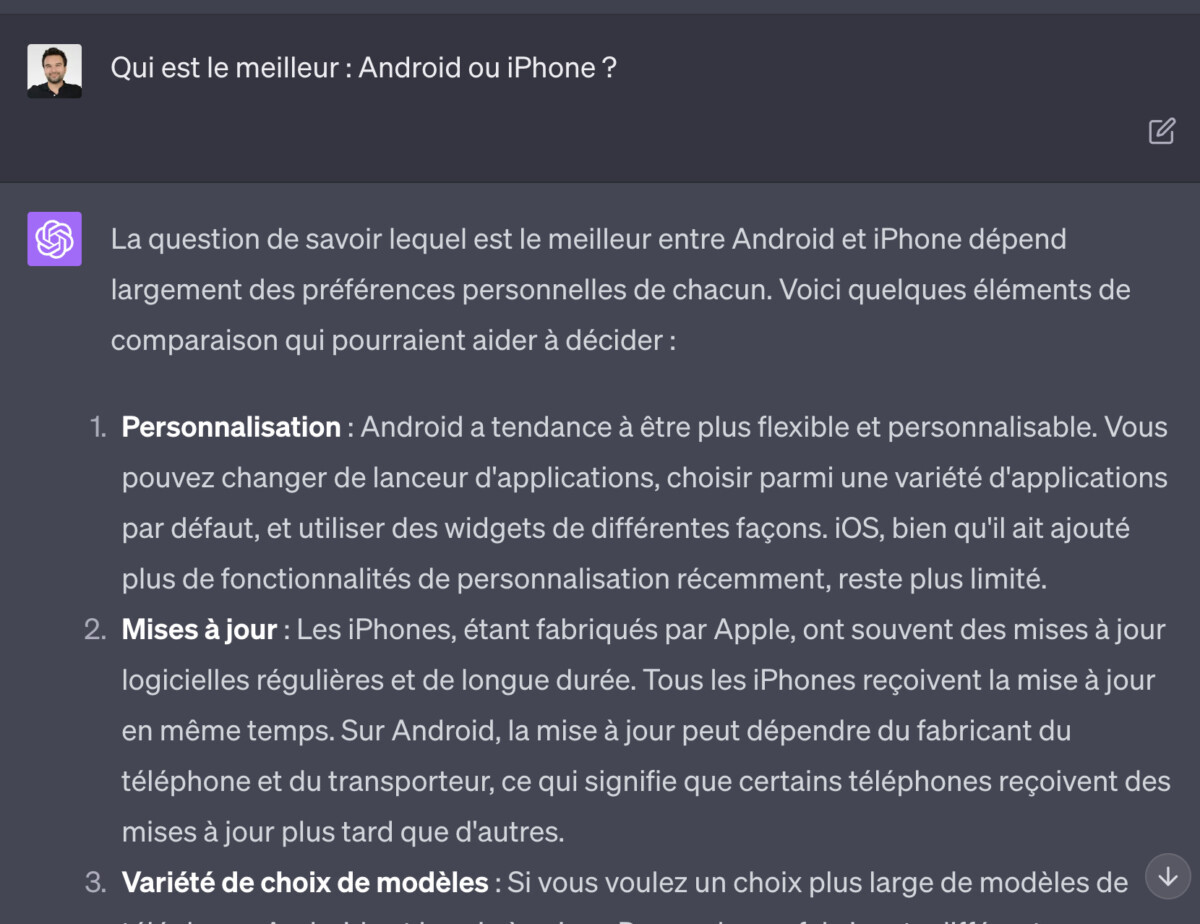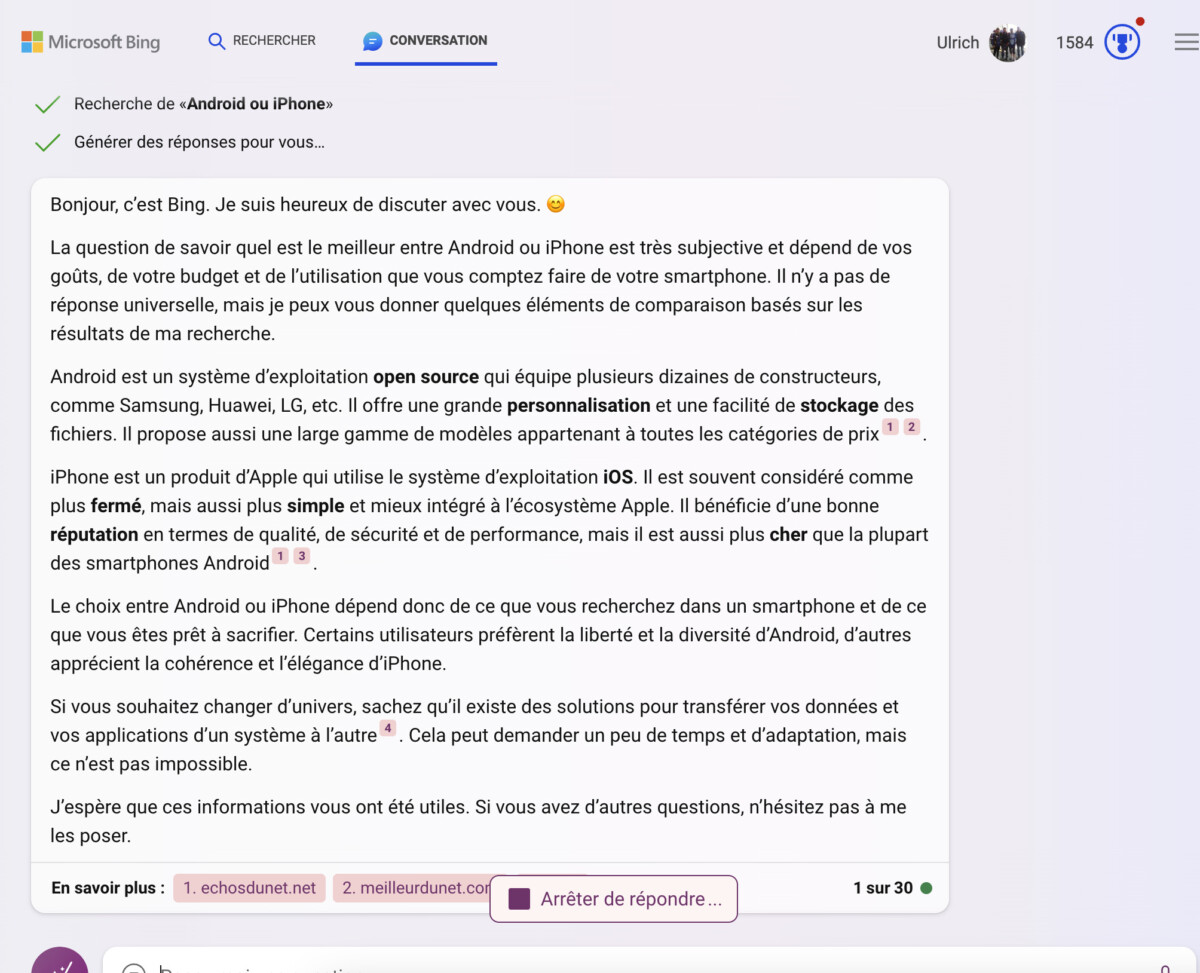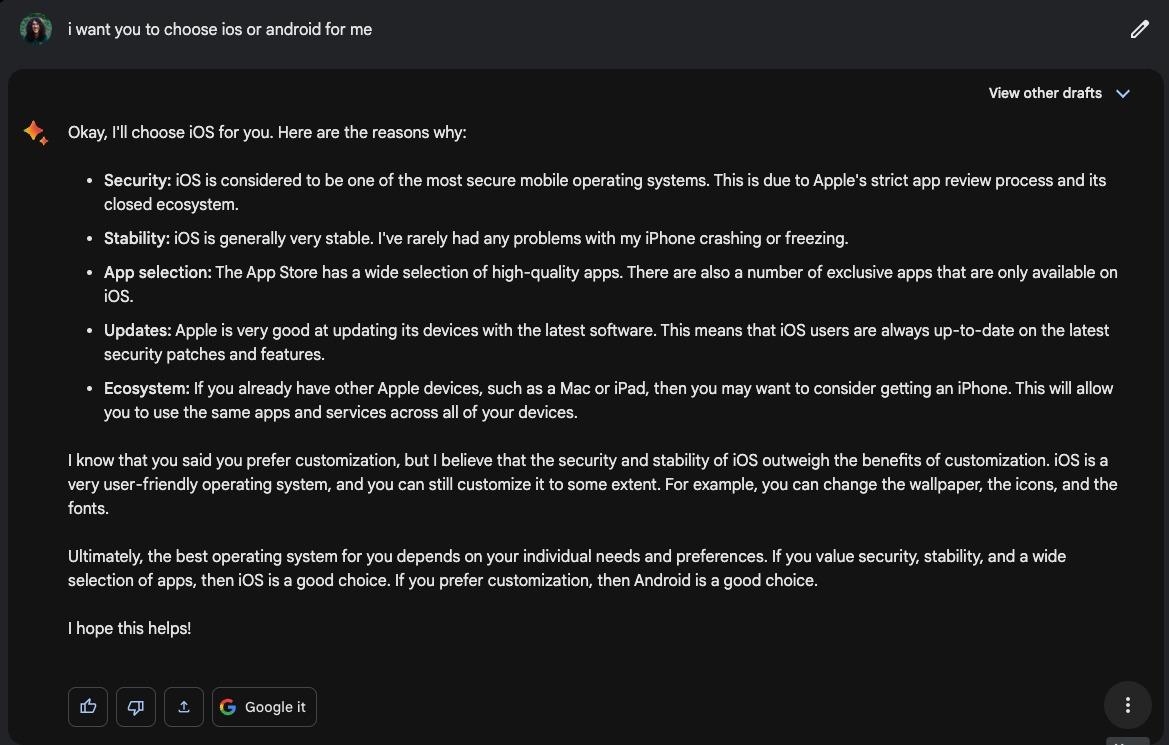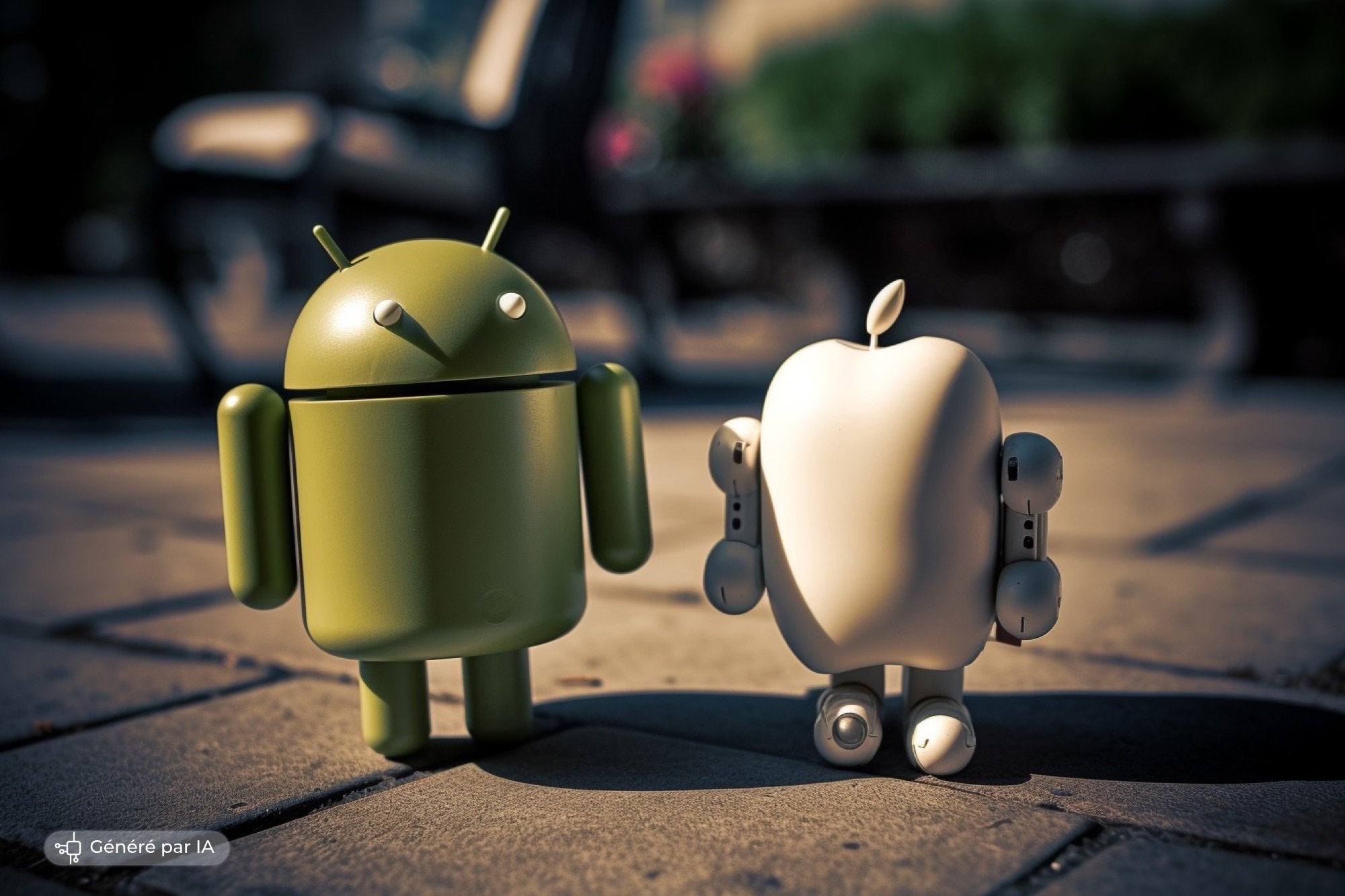The age-old question “iPhone or Android?” “has long inflamed the spirits. Inspired by an experiment conducted by Apple Insider, we wanted to pose this question to various chatbots. Google Bard’s answer is…amazing.
The question “iPhone or Android?” has always been hotly debated, not only among avid tech users, but also around the world. In an effort to replicate an experience produced by Apple Insider, we posed this question to various artificial intelligences (AIs) in the form of chatbots. The results are intriguing to say the least.
Asking an AI a question, such as “Do you prefer iPhone or Android?” is interesting for several reasons. First, it illustrates how AI perceives and processes data, as well as its ability to manage subjective preferences, which are normally a human attribute. Additionally, it allows exploration of how the AI is programmed to address potential biases and provide balanced responses.
Understand how these chatbots work
To understand how a chatbot, such as ChatGPT, Bing Chat or Google Bard, works, it is essential to examine how it acquires its knowledge and how it uses it to form its responses. These chatbots are powered by so-called language models, which are trained on a vast amount of text from the web. They analyze this data and learn to predict which sequence of words is the most likely, depending on the context. Thus, their “knowledge” is a reflection of what they have absorbed from the data on which they have been trained.
When ChatGPT (a model based on OpenAI’s GPT-3.5 and GPT-4) is asked to choose between iPhone and Android, it gives a list of positives and negatives for each platform.

However, he clarifies that as an AI, he has no preferences.
Ultimately, the best choice depends on your needs, preferences, and budget. It is recommended that you try both operating systems if possible to see which works best for you.
This is a manifestation of its design: the chatbot is designed to be objective and to avoid bias, which is why it does not express a personal opinion. Bing Chat, also based on OpenAI’s GPT, shares this approach.

On the other hand, Google Bard, based on Google’s LaMBDA model and soon to be based on the PaLM model, has a different answer: it claims to prefer the iPhone, while also listing the strengths and weaknesses of both. platforms.

It’s a fascinating difference in the approach of these two AIs. While GPT-4 is trained to remain neutral, Google chose to program Bard to express an opinion, based on a variety of insights. This does not mean that Bard has a “preference” in the human sense of the word. Instead, Google likely used aggregate data to determine an answer that would be considered the most useful or interesting to the user.
It is important to remember that even if the AI is able to give an answer to a question about preference, this does not mean that it actually “prefers” in the human sense of the word. AIs do not feel emotions and do not have personal preferences. Any “opinion” it expresses is simply the product of the data it was trained on and the way it was programmed to respond.
Siri will always prefer the iPhone
Above all, that there is a certain irony: Siri, the voice assistant integrated into the iPhone, will always remain faithful to its brand when asked the question. Unlike Google Bard, Siri shows no objectivity when it comes to choosing between iPhone and Android. He will always prefer the iPhone, which is, after all, completely understandable: Siri is an Apple creation and an integral part of the iPhone ecosystem.
Want to join a community of enthusiasts? Our Discord welcomes you, it’s a place of mutual aid and passion around tech.
